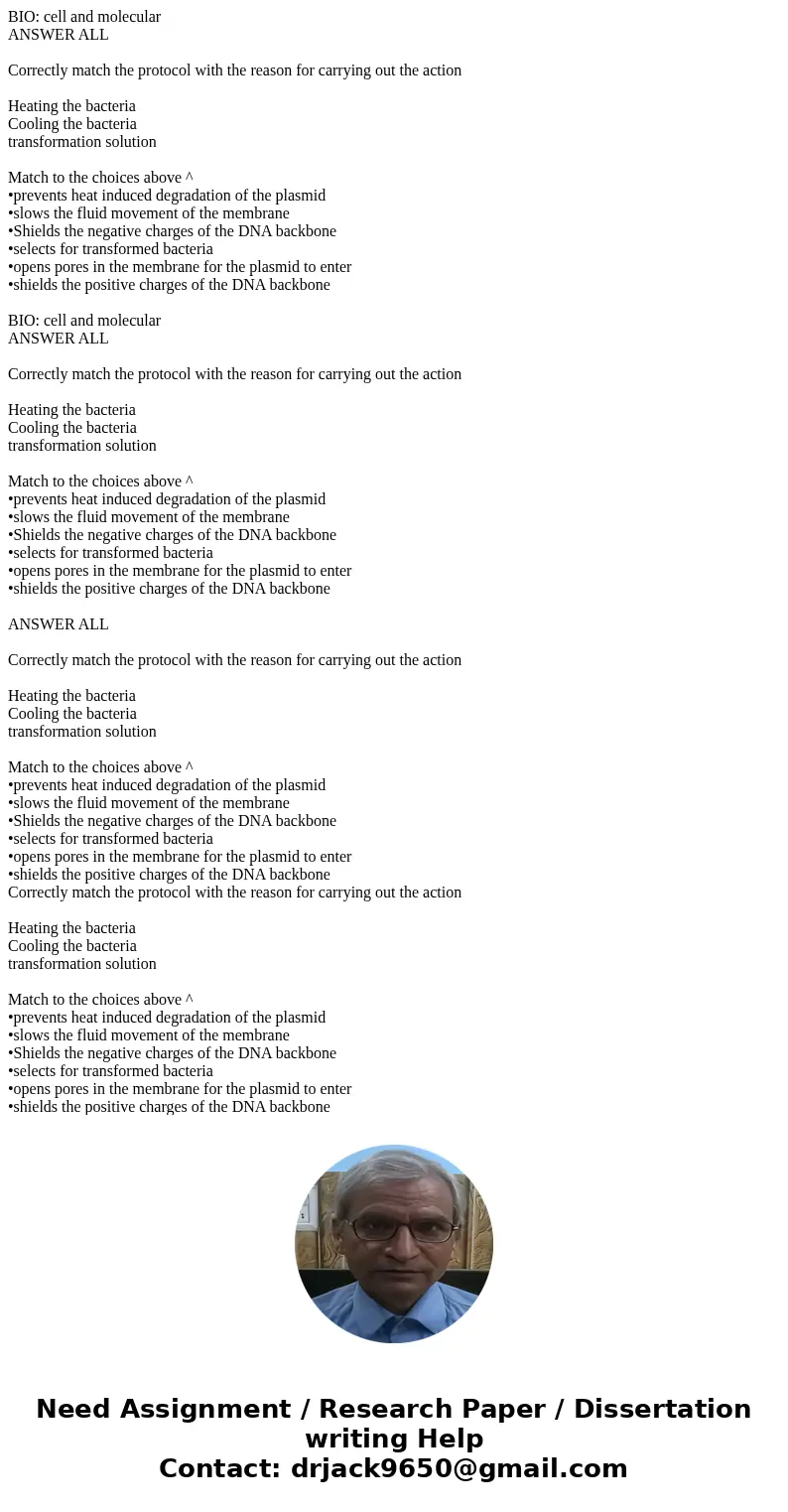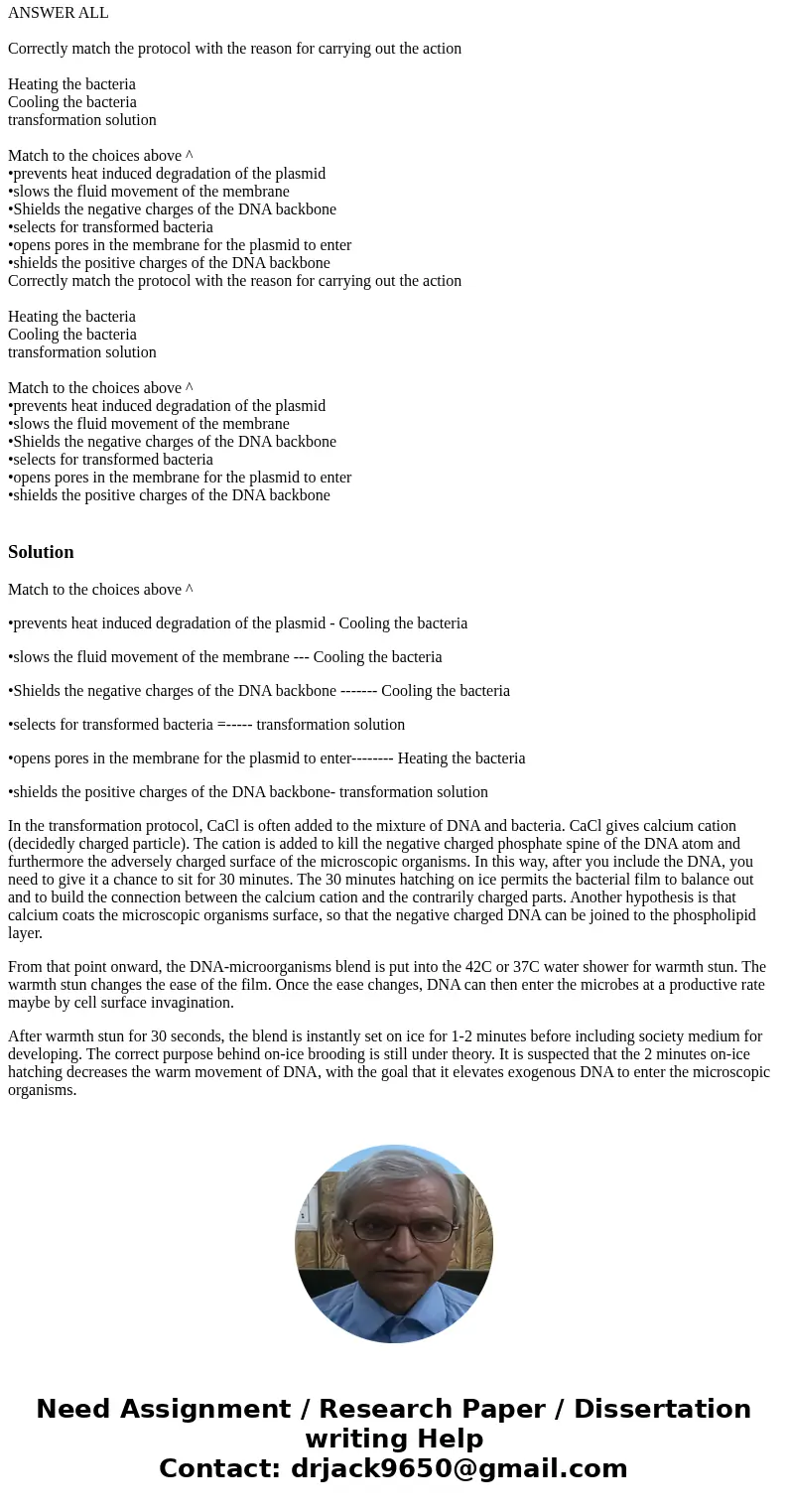BIO cell and molecular ANSWER ALL Correctly match the protoc
Solution
Match to the choices above ^
•prevents heat induced degradation of the plasmid - Cooling the bacteria
•slows the fluid movement of the membrane --- Cooling the bacteria
•Shields the negative charges of the DNA backbone ------- Cooling the bacteria
•selects for transformed bacteria =----- transformation solution
•opens pores in the membrane for the plasmid to enter-------- Heating the bacteria
•shields the positive charges of the DNA backbone- transformation solution
In the transformation protocol, CaCl is often added to the mixture of DNA and bacteria. CaCl gives calcium cation (decidedly charged particle). The cation is added to kill the negative charged phosphate spine of the DNA atom and furthermore the adversely charged surface of the microscopic organisms. In this way, after you include the DNA, you need to give it a chance to sit for 30 minutes. The 30 minutes hatching on ice permits the bacterial film to balance out and to build the connection between the calcium cation and the contrarily charged parts. Another hypothesis is that calcium coats the microscopic organisms surface, so that the negative charged DNA can be joined to the phospholipid layer.
From that point onward, the DNA-microorganisms blend is put into the 42C or 37C water shower for warmth stun. The warmth stun changes the ease of the film. Once the ease changes, DNA can then enter the microbes at a productive rate maybe by cell surface invagination.
After warmth stun for 30 seconds, the blend is instantly set on ice for 1-2 minutes before including society medium for developing. The correct purpose behind on-ice brooding is still under theory. It is suspected that the 2 minutes on-ice hatching decreases the warm movement of DNA, with the goal that it elevates exogenous DNA to enter the microscopic organisms.


 Homework Sourse
Homework Sourse